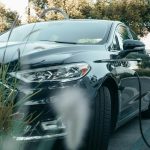In a world where environmental consciousness is on the rise, fuel-efficient driving has become more than just a trend—it’s a responsible choice that benefits both the planet and your wallet. In this article, we’ll explore essential tips and strategies to help you make the most out of every drop of fuel.
Understand Your Vehicle
The journey towards fuel efficiency begins with understanding your vehicle. Different cars have varying levels of fuel efficiency, and factors like regular maintenance can significantly impact performance. Ensure your vehicle is in top-notch condition to maximize fuel efficiency.
Smart Driving Habits
One of the simplest ways to save fuel is by adopting smart driving habits. Gentle acceleration, smooth braking, and maintaining a consistent speed all contribute to reduced fuel consumption. By avoiding aggressive driving, you not only save money on gas but also extend the lifespan of your vehicle.
Proper Tire Maintenance
Believe it or not, the condition of your tires plays a crucial role in fuel efficiency. Keep your tires properly inflated, as under-inflated tires can increase fuel consumption. Additionally, consider investing in fuel-efficient tires designed to reduce rolling resistance.
Reduce Vehicle Weight
Excess weight in your vehicle means more fuel consumption. Take a few moments to clean out unnecessary items from your car, reducing the load and increasing fuel efficiency. A lighter car requires less energy to move, translating to fuel savings.
Plan Your Trips Efficiently
Strategic trip planning is another effective way to enhance fuel efficiency. Combine errands to minimize driving and consider using GPS apps to find the most optimized routes, avoiding unnecessary detours and congested areas.
Engine Efficiency Tips
Regular engine maintenance is crucial for fuel efficiency. Schedule routine checks and address any issues promptly. Additionally, be mindful of idling, as unnecessary engine running consumes fuel. Turn off your engine when parked for an extended period.
Utilize Cruise Control
Cruise control isn’t just for highway driving—it’s a valuable tool for fuel efficiency. When driving on a flat and consistent road, engage cruise control to maintain a steady speed, preventing unnecessary fuel consumption due to erratic acceleration.
Fuel-Efficient Driving Technologies
Advancements in vehicle technology offer additional opportunities for fuel savings. Consider hybrid or electric cars, which often come with features designed to optimize fuel efficiency. Stay informed about the latest innovations in eco-friendly driving.
Eco-Friendly Fuel Choices
Beyond driving habits, consider the fuel you use. Explore alternative fuel options, such as biodiesel or ethanol blends, and weigh their pros and cons. Making informed choices about your fuel can contribute to a greener and more fuel-efficient future.
Driving Mindfully in Traffic
Navigating traffic efficiently is a challenge, but it’s crucial for fuel-conscious drivers. Minimize idling, turn off the engine during extended stops, and limit the use of air conditioning in heavy traffic. Small adjustments can lead to significant fuel savings.
The Impact of Speed on Fuel Economy
It’s a common misconception that driving faster saves time. In reality, higher speeds often result in reduced fuel efficiency. Find the sweet spot where you maintain a reasonable speed without compromising fuel economy, especially on long journeys.
Educating Others
Promote fuel-efficient driving within your community. Share your knowledge with friends and family, encouraging them to adopt eco-friendly habits. A collective effort can make a substantial impact on reducing overall fuel consumption.
Government Incentives for Fuel Efficiency
Governments worldwide are recognizing the importance of fuel efficiency. Stay informed about potential incentives for fuel-efficient vehicles, such as tax credits or rebates. Taking advantage of these programs can make eco-friendly driving even more appealing.
Conclusion
In conclusion, fuel-efficient driving is a blend of mindful habits, proper vehicle maintenance, and embracing modern technologies. By incorporating these tips into your driving routine, you not only contribute to a cleaner environment but also save money in the long run. Small changes can lead to significant results, making fuel-efficient driving a win-win for both you and the planet.
FAQs:
What is the most fuel-efficient speed to drive?
The optimal speed for fuel efficiency varies by vehicle but is generally between 45-65 mph on highways.
Do fuel-efficient tires really make a difference?
Yes, fuel-efficient tires with low rolling resistance can contribute to improved fuel economy.
Are electric cars the only eco-friendly option?
No, there are alternative fuels like biodiesel and ethanol, providing eco-friendly choices for traditional vehicles.
How can I educate others about fuel-efficient driving?
Share articles, tips, and personal experiences on social media and within your community.
Are there government incentives for fuel-efficient driving?
Many governments offer incentives such as tax credits or rebates for purchasing fuel-efficient vehicles.
Last Updated on November 21, 2023 by admin

Mac is an Automotive enthusiast. He owns up to 15 vehicles. He deals with Auto problems and shows his skill to Car owners who are seeking any type of Car help.





